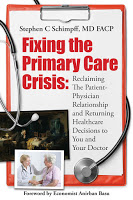Much of modern life in Western civilization has its roots in ancient Greece. From sprawling concepts such as democracy, geometry, and urban planning to smaller items like the alarm clock and the umbrella, the Greeks had some great ideas. Many of their important contributions to the field of medicine were spearheaded by Hippocrates who was able to show that disease was a natural process rather than a consequence of angering the gods.
Much of modern life in Western civilization has its roots in ancient Greece. From sprawling concepts such as democracy, geometry, and urban planning to smaller items like the alarm clock and the umbrella, the Greeks had some great ideas. Many of their important contributions to the field of medicine were spearheaded by Hippocrates who was able to show that disease was a natural process rather than a consequence of angering the gods. Although the oath named after him does not actually contain the well-known phrase, “First, do no harm,” the principle can be deduced from the original version and serves as the basis for the versions required by many of today’s medical schools as a way of setting high ethical standards for the profession.
Despite this pledge, there is a prevailing school of thought that American medicine is full of harm, that doctors make choices every day to harm their patients solely because they are afraid of being sued. Known as practicing “defensive medicine,” it refers to recommending a diagnostic test, procedure, or specialist visit that is not necessarily the best option for the patient, but an option that mainly serves to protect the physician against medical malpractice litigation. Defensive medical decision-making also encompasses those doctors who choose to avoid high-risk patients or procedures in order to reduce their exposure to lawsuits. Some of the most jaded opponents assert that defensive medicine should be called income-generating medicine because it is a smokescreen to justify the ordering of unnecessary medical interventions that are quite lucrative.
How prevalent is defensive medicine? Ninety-three percent of respondents to a Pennsylvania survey reported practicing defensive medicine. Avoiding patients with complex problems for fear of litigation was reported by over 40 percent as was using imaging technology in clinically unnecessary circumstances. Another survey found that 75 percent of physicians engaged in the controversial practice and 78 percent of them did so to avoid being named in a potential lawsuit. A reason given by 60 percent was because defensive medicine has become the new “standard of care” while 53 percent said they did it to adhere to the standard of perfection to which they believe patients hold physicians. Other reasons included that they did not want to risk their personal finances or reputation, that they had been named in a medical malpractice lawsuit and did not wish to repeat the experience, and that they were afraid they would look “deficient” if they didn’t make a defensive medical decision because other physicians of their specialty used it.
All these redundant, inappropriate, superfluous diagnostic tests, consultations, and imaging studies increase healthcare costs. A 2008 analysis by PricewaterhouseCoopers blamed defensive medicine as the single largest cause of unnecessary spending in medicine at an estimated $210 billion annually. In 2013, Gallup reported that one in four healthcare dollars spent in healthcare could be attributed to defensive medicine – about $650 billion annually. Whatever the actual total, medical liability issues will continue defensive medicine practices, limit patient access to care, and further increase the cost of healthcare if nothing is done.
Many states have recognized the need to act and have responded with tort reform measures. States such as California, Texas, Missouri, and Massachusetts have instituted some changes with varying degrees of success. The most commonly debated suggestions include:
- Caps on non-economic damages — limiting the amount of money that a plaintiff can take as an award for non-economic losses (pain and suffering).
- Administrative compensation systems – taking the medical malpractice cases out of the courts and instead have them resolved by a new administrative panel made up of health care experts and an administrative law judge.
- Health courts — specialized courts to deal with medical malpractice cases
- Physician safe harbors – granting increased liability protection to those physicians who can demonstrate that they followed established clinical guidelines.
- Disclosure, apologize and offer – doctors disclose when unanticipated adverse outcomes occur, investigate what happened, establish systems to improve patient safety and prevent the incidents from recurring, apologize and offer fair financial compensation.
(As unusual as it may sound, more than half of the states have already passed laws that prohibit using apologies as evidence of liability. A handful also protect doctors and hospitals from having an admission of fault to a patient or family shortly after the event from being used against them in malpractice litigation.)
A cap on damages is a popular potential solution, though there is evidence showing that it has no effect and evidence to the contrary. For example, one study found that capping awards in med-mal lawsuits cut losses an average of 39 percent and annual insurance premiums by 13 percent. According to a study published by the U.S. Department of Health and Human Services, states with caps have 12 percent more physicians per capita than states without caps, suggesting that an important benefit from caps is better access to care. On the other side, almost 80 percent of physicians responding to a survey reported no change or an increase in the amount of defensive medicine they practiced with caps in place. It has been theorized that damage caps have little to no effect on physician’s perceived malpractice risk. There is also the issue of doctors ordering extra tests and procedures believing this will ward off malpractice suits – and there is evidence suggesting that it does. Researchers examining data from 24,637 physicians and more than 18 million hospital admissions in Florida between 2000 and 2009, determined that the more a hospital billed, the less likely the doctor was to be sued.
Patients sometimes contribute to the problem of defensive medicine by believing in the theory that more is always better. More tests are not equivalent to better medicine. It’s important that medicine be more focused on avoiding real medical errors that cause malpractice liability and jeopardize patients than on circumventing liability by avoiding complex cases or overusing costly tests. Ironically, some elements of defensive medicine could be construed as serious violations of the standard of care and be the basis for a medical malpractice claim. For example, ordering a biopsy can expose a weak patient to adverse events just as ordering too many CT scans can expose a patient to dangerous doses of radiation. It’s important that these procedures are necessary and will likely improve the patient’s health rather than simply shield a nervous doctor.







